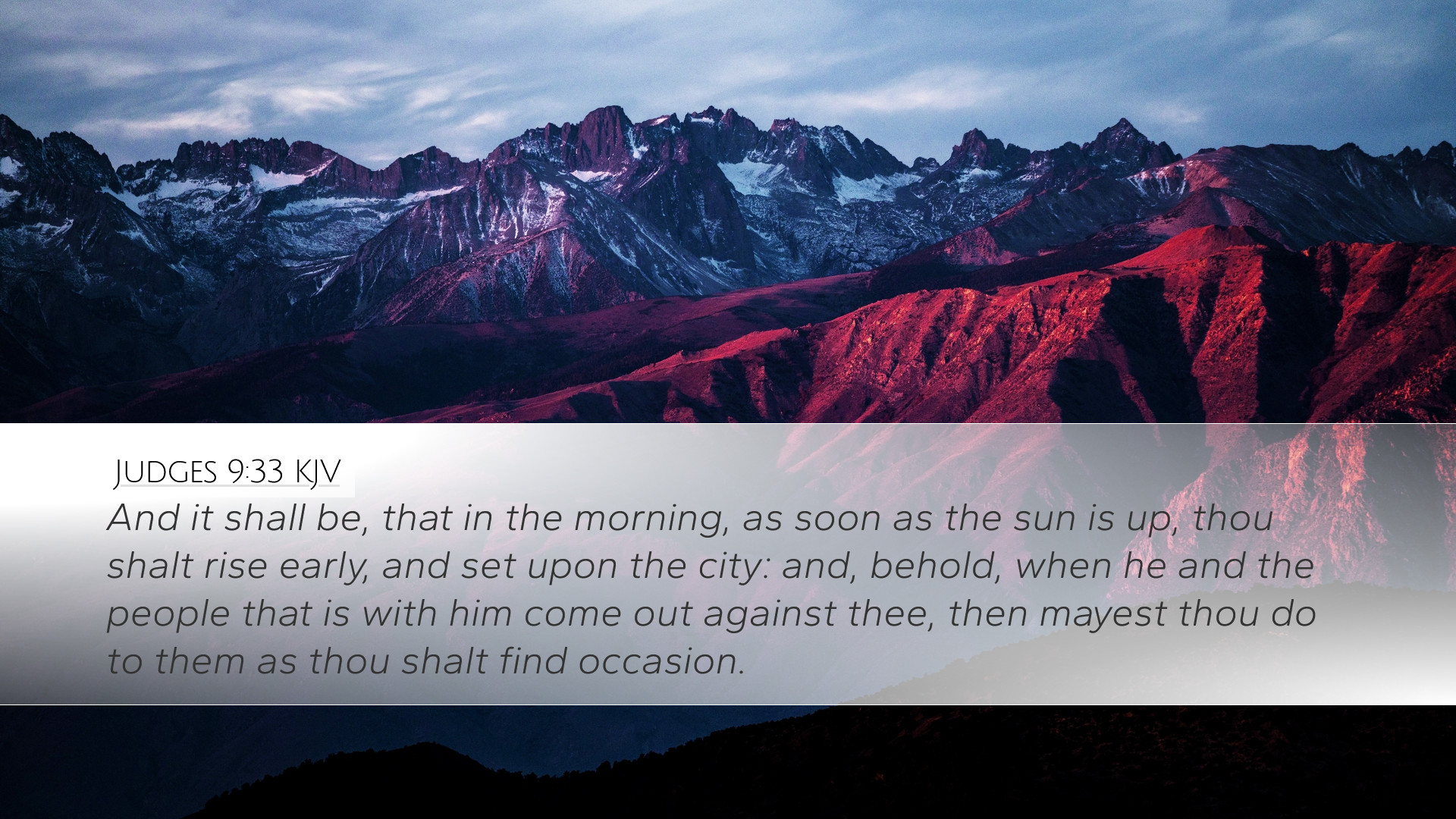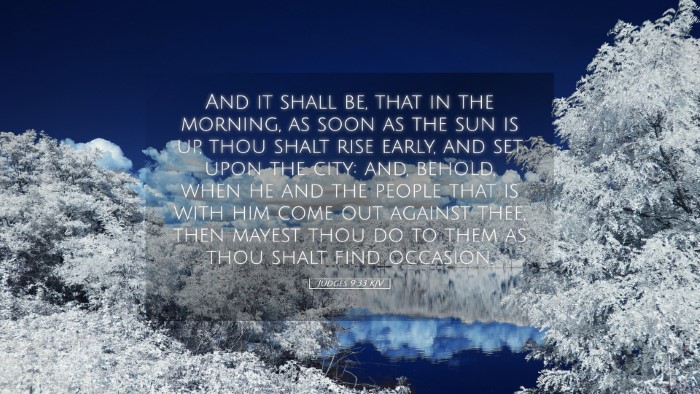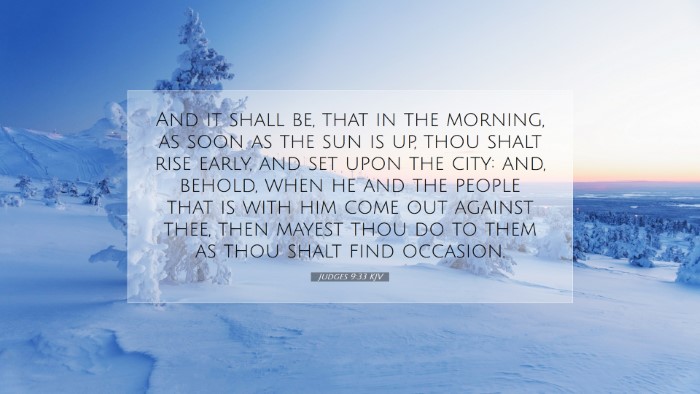Commentary on Judges 9:33
Judges 9:33 reads: "And it shall be, that in the morning, as soon as the sun is up, thou shalt rise early and set upon the city: and, behold, when he and the people that are with him come out against thee, then mayest thou do to them as thou shalt find occasion."
This verse serves as a critical turning point in the narrative of Abimelech and his usurpation of power in Shechem. The advice provided resonates with themes of strategy and moral complexity embedded within the text of Judges.
Contextual Analysis
Understanding the context is essential for a thorough exposition. Abimelech, son of Gideon, plotted against the citizens of Shechem after killing his half-brothers to secure his rule. This act set the stage for impending conflict, and Judges 9:33 marks the moment when a decisive course of action is advised.
Insights from Matthew Henry
Matthew Henry emphasizes the planning and strategic foresight that is suggested in this verse. He interprets the command to rise early as indicative of the urgent and proactive approach necessary when facing opposition:
- Preparation: "Rising early denotes preparation and diligence, traits essential for leadership."
- Opportunity: "By encouraging vigilant awareness, the text illustrates that opportunity must be seized upon as it arises."
Henry also points out the moral implications of deceit and manipulation prevalent in Abimelech’s rise. It embodies the chaotic nature of Israel's leadership during this period, where moral ambiguity often led to violent upheaval.
Insights from Albert Barnes
Albert Barnes provides a detailed examination of Abimelech's strategy as it unfolds in this narrative. He notes that there is significant weight in the instruction to "set upon the city," showcasing a direct confrontation:
- Confrontation: "The phrase indicates an intention to surprise the city at an opportune moment, suggesting a tactical advantage."
- Timing: "The mention of morning signifies new beginnings, illustrating the importance of timing in warfare—as well as in spiritual battles."
Barnes further dives into the psychology of leadership, discussing how Abimelech’s actions reflect a manifestation of ambition without moral restraint. Such actions inevitably lead to destruction and betrayal amidst the city’s citizens.
Insights from Adam Clarke
Adam Clarke focuses on the implications of Abimelech's strategy, and he articulates the need for discerning wisdom in spiritual and earthly matters. His commentary emphasizes:
- Wisdom in Warfare: "The directive serves as a metaphor for the spiritual readiness needed in all battles—be they spiritual, emotional, or societal."
- Divine Sovereignty: "Despite Abimelech's treachery, Clarke reminds readers of the overarching sovereignty of God in directing the outcomes of human endeavors, even those that are wicked."
Clarke's analysis encourages readers to reflect on the consequences of human ambition and the divine justice that ultimately prevails, emphasizing the hope found within the broader narrative of Scripture.
Theological Reflections
From the combined insights of these commentators, a robust theological reflection emerges. Judges 9:33 not only represents a moment of military strategy but also invites deeper considerations of:
- Human Ambition: The drive for power and leadership often leads to moral compromises.
- Divine Justice: Even in apparent chaos, God’s sovereignty orchestrates the unfolding of history towards divine purposes.
- Readiness and Vigilance: Believers are called to be vigilant and prepared for the spiritual battles they will face.
Practical Applications
For pastors, students, and theologians, the narrative surrounding Judges 9:33 offers several applications:
- Leadership Lessons: Examine the qualities of godly leadership contrasted with corrupt ambition.
- Moral Integrity: Reflect on the moral challenges leaders face and strive for integrity in decision-making.
- Spiritual Warfare: Encourage congregations to engage in prayer and preparedness for the trials they encounter.
Conclusion
In conclusion, Judges 9:33 serves as a profound testament to the complexities of leadership, the danger of unchecked ambition, and the ever-present need for spiritual vigilance. The insights drawn from the commentaries of Matthew Henry, Albert Barnes, and Adam Clarke provide a rich tapestry of understanding that resonates with the realities of both ancient Israelite society and contemporary faith communities.


